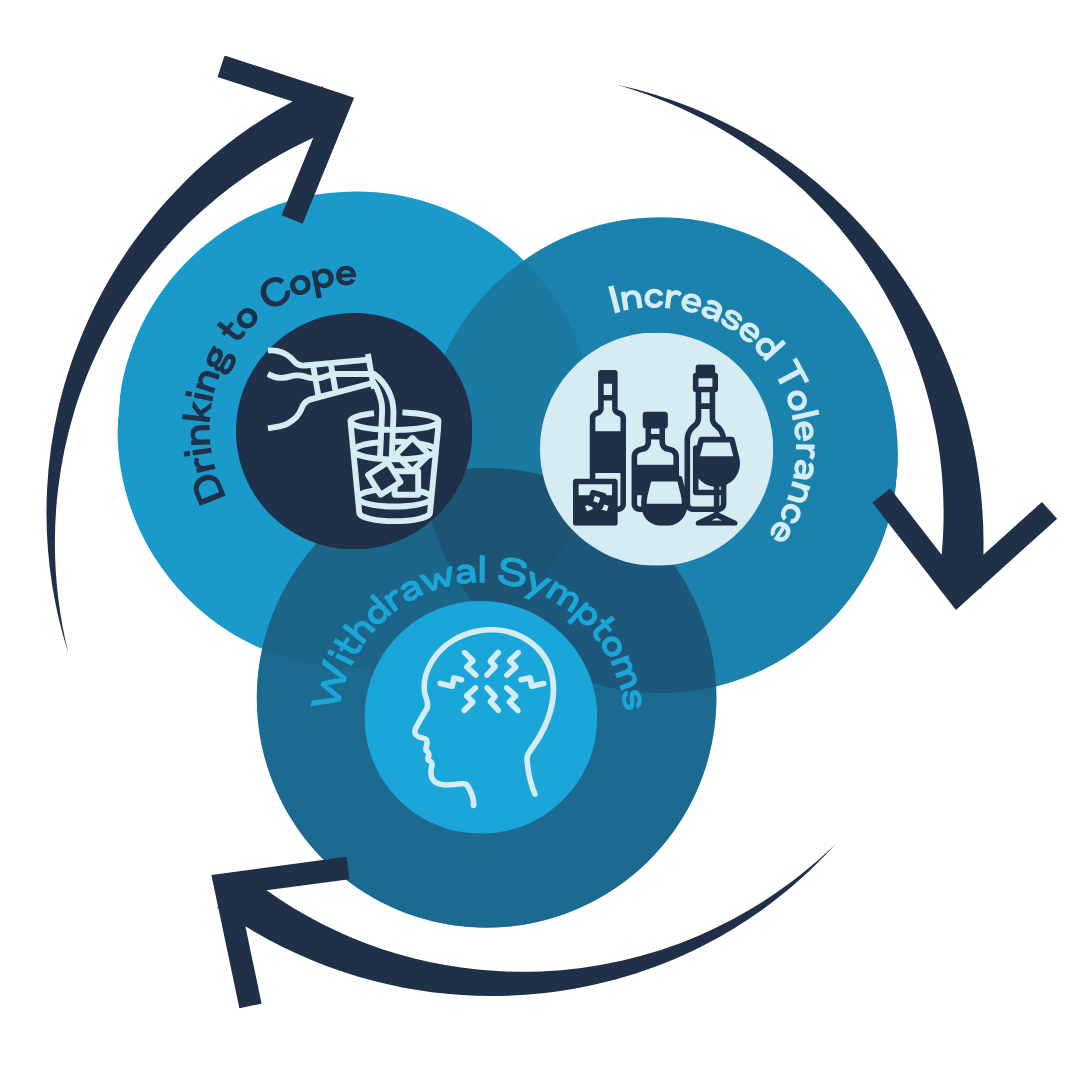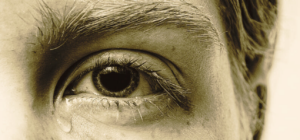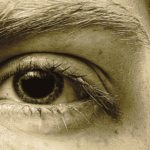
Alcohol Rehab
Sections in this Article
- Overcoming Alcohol Addiction
- Prevalence of Alcohol Use
- Alcohol Use Disorder (AUD)
- Signs of Alcohol Addiction
- Managing Alcohol Withdrawal Symptoms
- The Impact of Chronic Alcohol Use
- Risk Factors for Alcohol Addiction
- The First Step in Addiction Treatment
- Alcohol Addiction Treatment: Next Steps
- The Importance of Aftercare and Support
- Building a New Life and Preventing Relapse in Recovery
- How to Get Help: Finding the Right Alcohol Rehab
- What to Expect from Legacy Healing Center
- Steps to Take If You or a Loved One Needs Help
Overcoming Alcohol Addiction
For many people, drinking alcohol is a normal part of life—whether it’s having a glass of wine at dinner, enjoying a beer at a barbecue, or unwinding with a drink after a long day. These occasional moments of drinking can feel like a way to relax or socialize. However, alcohol addiction doesn’t happen overnight; it can affect anyone, regardless of background, age, or lifestyle. The transition from moderate use to addiction is often gradual, making it easy to overlook until it’s too late.
Alcohol addiction can be overwhelming; the road to recovery may feel uncertain or intimidating. However, with the right resources and support, it is possible to regain control, rebuild relationships, and restore physical and emotional health. As a trusted addiction treatment center with facilities across the country, Legacy Healing Center explores the nature of alcohol use disorder, explains the detoxification process, and provides a comprehensive look at available treatment options for alcohol addiction. Our goal is to provide clarity, hope, and a path forward for those ready to take the first step toward healing.
Prevalence of Alcohol Use
Alcohol use is often woven into the fabric of daily life. For many, drinking socially—whether it’s a glass of wine with dinner or a beer at a game—is a harmless and enjoyable activity. But for some, alcohol use gradually shifts from something occasional and controlled to a powerful and overwhelming force. This shift is often the beginning of alcohol addiction, a condition where alcohol becomes both physically and psychologically necessary.
Drinking Socially vs. Alcohol Addiction
Drinking socially typically refers to the occasional, moderate consumption of alcohol. For most people, this means having a drink here and there without it interfering with responsibilities, relationships, or health. Social drinking is a choice, and it doesn’t dictate your life. People who drink socially are generally able to stop or reduce their alcohol consumption without difficulty.
Alcohol addiction, on the other hand, is a condition where alcohol begins to take priority over other aspects of life. It’s no longer just a choice—it becomes something that’s necessary for functioning or coping with life. When alcohol use shifts from being a social activity to a compulsive behavior, it can signal a problem with addiction.
Alcohol Use Disorder (AUD)
Alcohol use disorder (AUD) is a pervasive condition affecting millions of individuals worldwide. In the United States alone, approximately 28.9 million adults struggle with AUD, making it one of the most common substance use disorders (National Institute on Alcohol Abuse and Alcoholism [NIAAA], 2024). AUD is characterized by an inability to control alcohol consumption despite negative consequences, which can impact an individual’s physical health, mental well-being, and personal relationships.
The Cycle of Addiction

Alcohol addiction often develops gradually, starting with occasional drinking and progressing into a subtle and insidious cycle that is harder to break, with alcohol use increasing over time:
- Drinking to Cope: Initially, drinking may start as a way to relax, fit in, or celebrate. Over time, however, it becomes a coping mechanism. What once was a choice can evolve into a need, where alcohol becomes the go-to solution for managing life’s challenges.
- Increasing Tolerance: As alcohol use continues, the body adapts. This means that what once provided a buzz or relaxed the person no longer has the same effect. The result? Increased drinking. For someone with alcohol addiction, the goal shifts from enjoying a drink to simply feeling the effects of alcohol.
- Withdrawal Symptoms: As tolerance builds, so too does physical dependence. When alcohol is no longer available, the body reacts with withdrawal symptoms, which can range from mild to severe. These symptoms can be a powerful motivator for continued drinking to avoid discomfort.
Signs of Alcohol Addiction
Recognizing the signs of alcohol addiction can be challenging, especially since they can develop gradually. However, there are some key behavioral and physical signs that often indicate a problem.
- Behavioral signs include increased drinking frequency, neglecting work and family responsibilities, drinking alone or in secret, inability to cut back despite consequences, and engaging in risky behaviors such as driving under the influence..
- Physical signs include building a tolerance, experiencing withdrawal symptoms, and developing health issues.
Managing Alcohol Withdrawal Symptoms
When someone who has been drinking heavily for a prolonged period stops or significantly reduces their alcohol intake, their body reacts. Alcohol withdrawal, a major factor of detox programs, is the process the body undergoes when it’s adjusting to the absence of alcohol; it can be a physically and emotionally taxing experience.
Common Alcohol Withdrawal Symptoms
The severity of withdrawal symptoms depends largely on the degree of physical dependence and the duration of alcohol use. In some cases, withdrawal can be fatal if not treated properly, which is why it’s essential to seek professional help. Common symptoms include:
- Mild Symptoms: Anxiety, tremors, sweating, nausea, insomnia, irritability, and headaches
- Moderate Symptoms: Elevated blood pressure, heart rate, confusion, slurred speech, blurred vision, impaired judgment and coordination, vomiting, and heightened anxiety or depression
- Severe Symptoms: Life-threatening symptoms like seizures, delirium tremens (DTs), and severe dehydration can occur, requiring immediate medical attention.
⚠️ Delirium tremens (DTs) is a severe form of alcohol withdrawal that includes confusion, hallucinations, high blood pressure, and potentially life-threatening instability in vital signs.
Phases of Alcohol Withdrawal
Withdrawal progresses through two phases:
- Acute Phase: Begins 6-12 hours after the last drink, peaking in 1-7 days. During this time, withdrawal symptoms can be at their most intense, especially for individuals who have been drinking heavily for a long period.
- Post-Acute Withdrawal Syndrome (PAWS): After the acute phase, lingering symptoms such as mood swings, fatigue, concentration difficulties, sleep disturbances, and cravings can persist for weeks or months. PAWS can be one of the most challenging aspects of recovery, as individuals may feel tempted to relapse just to relieve the discomfort of ongoing symptoms. However, it’s important to know that PAWS typically subsides over time, especially with proper care, support, and ongoing treatment.
Effective Interventions for Alcohol Withdrawal
Because the effects of alcohol withdrawal can be unpredictable and dangerous, management typically involves a combination of medications, professional supervision, and therapeutic support.
Medication-Assisted Treatment for Alcohol Addiction

Benzodiazepines:
Benzos are widely used to reduce anxiety, prevent seizures, and stabilize vital signs during alcohol detox.
- Klonopin is used for alcohol withdrawal due to its long-acting nature, which helps to manage moderate-to-severe symptoms and reduce the risk of seizures.
- Other commonly used options include Diazepam (Valium), Lorazepam (Ativan), and Chlordiazepoxide (Librium).
Anticonvulsants:
Medications like gabapentin or carbamazepine may be used, particularly for individuals at risk of benzodiazepine dependence or in outpatient settings.
Adjunctive Medications:
- Clonidine and beta-blockers (like propranolol) help control elevated blood pressure, heart rate, and physical agitation.
- Antipsychotics may be prescribed in cases of severe hallucinations or agitation.
- Thiamine (Vitamin B1) and other nutritional supplements are essential to prevent complications such as Wernicke-Korsakoff syndrome.
Supportive Care
The team of specialists at Legacy Healing Center ensures that clients receive proper hydration, electrolyte balance, and rest, which are critical to recovery. Nutritional support and sleep hygiene can help stabilize physical health during withdrawal.
Therapeutic and Behavioral Support
Counseling, group therapy, and structured rehabilitation programs play a vital role in preventing relapse, especially during the PAWS phase.
Inpatient vs. Outpatient Care
Individuals with a history of seizures, DTs, or co-occurring mental health conditions may require inpatient medical detox. Those with less severe symptoms may detox safely in outpatient settings with medical oversight.
The Impact of Chronic Alcohol Use
Chronic alcohol use doesn’t just affect your ability to control your drinking; it has profound effects on both the body and the mind, some of which can be permanent.
- Physical Health: Chronic alcohol use can lead to liver disease (cirrhosis, fatty liver), heart disease (high blood pressure, arrhythmias), digestive issues (ulcers, pancreatitis), brain damage (memory loss, cognitive decline), and weakened immune function.
- Mental Health: Prolonged alcohol abuse often contributes to mental health issues such as depression, anxiety, and an increased risk of suicidal thoughts or behaviors. Alcohol also impairs the brain’s ability to regulate emotions, leading to difficulties in maintaining relationships, holding down a job, or managing stress.
- Social Consequences: Chronic alcohol use strains personal relationships, leading to social isolation, job loss, and potential legal issues.
Risk Factors for Alcohol Addiction
Alcohol addiction doesn’t happen in a vacuum. While anyone can develop an alcohol use disorder, several risk factors make some individuals more vulnerable:
| Risk Factor | Description |
| Genetics | Family history plays a significant role in addiction. If a person has relatives with alcohol use disorder, they may be at a higher risk of developing it due to genetic factors that affect how alcohol is processed and how addictive behaviors develop. |
| Environment | Growing up in an environment where alcohol use is prevalent or normalized can increase the likelihood of developing an addiction later in life. |
| Trauma and Mental Health | People who have experienced trauma, abuse, or significant stress, or those with underlying mental health issues such as anxiety, depression, or PTSD, may turn to alcohol as a way of self-medicating. This can increase the risk of developing a dependence on alcohol. |
| Social and Peer Influence | Peer pressure, social circles, and a desire to fit in can increase the likelihood of heavy drinking, especially during adolescence and early adulthood. |
Alcohol addiction is a complex and progressive condition that impacts both the body and the mind. Recognizing the signs of alcohol addiction and understanding the risks is the first step toward seeking help. If you or someone you know is struggling with alcohol use, know that recovery is possible with the compassionate team at Legacy Healing Center. You can break free from the cycle of addiction and begin the journey toward healing and a better life.
The First Step in Addiction Treatment
When someone is ready to begin their recovery journey from alcohol addiction, the first step is typically alcohol detox, a crucial and necessary process to safely remove alcohol from the body. It’s designed to help individuals safely navigate the withdrawal process, preventing serious health complications and easing the discomfort of withdrawal symptoms.
Why Alcohol Detox Is Necessary
When someone drinks heavily and regularly, their body becomes physically dependent on alcohol to function. The body and brain adapt to the presence of alcohol, and when it’s suddenly removed, it causes a shock to the system, leading to withdrawal symptoms. These symptoms can range from mild to severe, and in some cases, they can be life-threatening.
- Physical Dependence: The more alcohol someone consumes over time, the more their body becomes used to having alcohol in the system. When alcohol is withdrawn, the body struggles to adjust. These reactions are a sign that the body is physically dependent and needs medical supervision during detox.
- Risks of Not Detoxing Properly: While some individuals might consider detoxing at home, attempting to go through alcohol withdrawal without medical supervision can be extremely dangerous. Withdrawal from alcohol can trigger severe, potentially life-threatening symptoms, especially in heavy or long-term drinkers.
Medical professionals are trained to safely monitor and alleviate withdrawal symptoms and intervene when necessary. They can assess the severity of withdrawal symptoms and adjust medical care as needed to help individuals regain their physical stability so they can move forward with long-term treatment.
Since alcohol has a significant impact on the central nervous system, detox must be managed carefully to ensure the person’s safety and comfort. Alcohol detox is not a one-size-fits-all approach; each person’s needs will be different based on the severity of their alcohol use and overall health. In a medical setting, individuals are closely observed for signs of serious complications, like seizures or dehydration, which can be managed immediately.
Addressing Concerns About Alcohol Detox
It’s completely natural to feel apprehensive about alcohol detox, especially with concerns about withdrawal symptoms and the uncertainty of the process. However, detox under medical supervision helps manage these symptoms, often with medications to ease discomfort and ensure safety.
Many people also hesitate to seek detox treatment because they feel ashamed or embarrassed. There’s still a significant amount of stigma surrounding addiction and treatment, with some fearing judgment or feeling as though they’ve “failed” by seeking help. This couldn’t be further from the truth. Addiction is a disease, not a moral failing, and this process is a critical, courageous step toward recovery. Seeking help shows strength and a willingness to get better.
Understanding that alcohol detox is a medical treatment designed to help people safely and comfortably begin their recovery is essential. It’s not something to fear—it’s something that enables a healthier, more stable life moving forward.
Phases of Alcohol Detox
Alcohol detox is a necessary first step for anyone struggling with alcohol addiction. It’s not an easy process, but with the right medical supervision and support, it’s entirely manageable. The ultimate goal is to help the body safely rid itself of alcohol, ease the discomfort of withdrawal, and prepare the individual for the next stage of their recovery journey.
The detox process is typically broken down into three main phases: assessment, stabilization, and transition to treatment. These phases work together to guide the individual through detox and prepare them for ongoing addiction treatment.
1. Assessment: Medical Evaluation
The first phase of detox is the assessment. Upon arrival at a detox center, a medical team will conduct a thorough evaluation of the individual’s health and drinking history. This assessment helps determine the severity of the addiction, the individual’s overall health, and any potential complications or medical conditions that may require special attention during detox. This is also when the detox plan is created, ensuring that each person receives personalized care based on their specific needs.
2. Stabilization: Managing Withdrawal Symptoms
Once detox begins, the primary goal is stabilization, which means helping the body adjust to the absence of alcohol while managing withdrawal symptoms in a safe and controlled manner. Medications such as benzodiazepines may be used to reduce anxiety, prevent seizures, and alleviate other withdrawal symptoms. The individual will be closely monitored by medical professionals throughout this phase to ensure that withdrawal symptoms are managed effectively and that complications are avoided. The length of this phase can vary depending on the severity of withdrawal, but it typically lasts anywhere from a few days to a week.
3. Transition to Treatment: Moving Toward Long-Term Recovery
Once alcohol detoxification is complete and the individual is stable, they move into the transition phase, which involves preparing for the next step in their recovery journey: treatment. Detox is only the first step; while it addresses the immediate physical aspects of addiction, it doesn’t address the underlying emotional, psychological, and behavioral aspects. This phase typically involves discussions about what type of treatment programs would be most beneficial (inpatient, outpatient, therapy, support groups), and transitioning to a more intensive treatment program designed to help the individual address their addiction on a deeper level.
The detox phase is just the beginning of recovery, and with the right medical support, withdrawal symptoms can be alleviated effectively, setting the stage for long-term healing and sobriety. The key takeaway: Medical supervision is critical for anyone going through alcohol withdrawal to ensure a safe, comfortable, and successful detox experience.
Alcohol Addiction Treatment: Next Steps
Completing alcohol detox is a monumental first step toward recovery; while it helps to rid the body of alcohol and may offer relief from the immediate physical withdrawal symptoms, it doesn’t treat the root causes of addiction. Alcohol use disorder is a complex disease that involves not only physical dependence but also significant psychological and emotional factors. The brain becomes chemically dependent on alcohol, and over time, the thought patterns and behaviors related to drinking can become deeply ingrained. Without addressing these deeper psychological factors, the risk of relapse remains high.
Alcohol rehab involves learning new coping mechanisms, rebuilding emotional stability, and developing the skills necessary to live a fulfilling, alcohol-free life. This is where therapy, counseling, and ongoing treatment come in. By following detox with a structured treatment program, individuals can begin to rebuild their lives and change the patterns of behavior that fueled their addiction.
Treatment Programs for Alcohol Use Disorder
There are several types of alcohol addiction treatment programs designed to meet the needs of individuals at various stages of recovery. The right treatment approach will depend on the person’s specific situation, level of addiction, and overall health.
Inpatient/Residential Treatment
Inpatient or residential addiction treatment is an immersive treatment option that provides 24/7 care in a controlled, supportive environment. This level of care is often recommended for individuals with severe addiction or those who have relapsed multiple times. In inpatient treatment, patients live at the facility and engage in a variety of therapies and activities designed to address their addiction and help them build a foundation for long-term sobriety. The structured environment removes external stressors, triggers, and temptations, allowing the individual to focus fully on their recovery without distractions.
Intensive Outpatient Programs (IOP)
Intensive outpatient programs (IOP) are more structured than regular outpatient treatment, providing a balance between the flexibility of outpatient care and the intensity of inpatient treatment. IOPs typically involve multiple therapy sessions per week, including both individual and group therapy, as well as educational workshops and life skills training. IOPs are often recommended for individuals who need a higher level of care but are able to live at home or in a supportive living environment. These programs allow individuals to engage in treatment while still attending to everyday responsibilities, and they provide extra support during the early stages of recovery.
Outpatient Treatment
Outpatient treatment provides more flexibility, allowing individuals to live at home while attending therapy and treatment sessions during the week. This option is ideal for people with milder forms of addiction or those who have completed inpatient treatment and are transitioning back into daily life. Outpatient programs allow individuals to maintain their responsibilities, such as work or family, while still receiving professional support. While outpatient care is less intensive than inpatient care, it still offers a structured approach to recovery, including regular therapy sessions, support groups, and medical supervision as needed.
Therapy and Counseling Approaches in Alcohol Rehab
A cornerstone of alcohol addiction treatment is therapy. Various therapeutic approaches are used to address the psychological and emotional aspects of addiction, helping individuals recognize their triggers, change unhealthy thought patterns, and learn new coping strategies.
Psychological and Behavioral Therapies
Psychological and behavioral therapies, such as cognitive behavioral therapy (CBT) and motivational interviewing (MI), are commonly used to identify and change harmful thought patterns, build motivation for change, and develop healthier coping mechanisms. These therapies help individuals recognize their triggers, resolve ambivalence, and empower them to take ownership of their recovery.
Family Therapy
Family therapy plays a critical role in alcohol addiction treatment, especially for individuals who have experienced strained relationships due to their drinking. Addiction impacts not only the individual but also their loved ones. Family therapy provides a safe space for family members to heal together, learn about addiction, and rebuild communication and trust. It helps loved ones understand how their behavior might contribute to the addiction and teaches them how to provide healthy support throughout the recovery process.
Holistic and Complementary Treatments
In addition to traditional therapies, many treatment centers integrate holistic therapies that focus on healing the body and mind as a whole. Therapies such as yoga, meditation, mindfulness, and art therapy, as well as a focus on nutrition and physical exercise, address the emotional, spiritual, and physical aspects of recovery, helping individuals achieve balance and well-being throughout the healing process.
The Importance of Aftercare and Support
Completing detox and an alcohol addiction treatment program are significant achievements, but it’s only the beginning of a lifelong journey toward sustained sobriety. Achieving long-term recovery involves developing new habits, building resilience, participating in aftercare programs, and maintaining a strong support system. Recovery doesn’t happen in isolation; the help of a supportive community can make all the difference in preventing relapse and maintaining progress.
- Sober Living Homes: After inpatient or outpatient treatment, sober living homes provide a structured, alcohol-free environment for continued recovery. They offer support, accountability, and community, helping individuals reintegrate into everyday life while maintaining sobriety.
- 12-Step Programs (AA): Alcoholics Anonymous (AA) and other 12-step programs provide a supportive framework for recovery through mutual support, fellowship, and spiritual growth. These programs help individuals build resilience, address emotional wounds, and maintain long-term sobriety.
- Peer Support Groups: Groups like SMART Recovery and LifeRing offer evidence-based support, focusing on empowerment and practical coping strategies. These programs provide a space for individuals to connect, share experiences, and offer emotional encouragement.
Building a New Life and Preventing Relapse in Recovery
Recovery is not just about quitting alcohol; it’s about creating a fulfilling life that supports lasting sobriety. This journey requires cultivating new habits, learning healthy coping strategies, and building a strong support network to prevent relapse. Recovery is an ongoing process, and while setbacks may occur, the key is to stay committed and keep moving forward.
- Create Healthy Coping Strategies: Managing stress and emotions without turning to alcohol is vital. Practicing mindfulness, journaling, exercising, or engaging in social activities with sober friends helps replace old drinking habits with healthier ways of coping. These strategies make it easier to navigate life’s challenges while maintaining emotional well-being.
- Building New Routines: Structure and consistency are essential in recovery. Establishing regular routines with activities like exercise, healthy eating, therapy, and support group meetings not only helps support sobriety but also fosters personal growth and new interests. A positive, structured lifestyle builds confidence and reinforces long-term recovery.
- Recognizing and Managing Relapse Triggers: Understanding potential relapse triggers is key to staying on track. Common triggers include:
- Stress and Anxiety: Emotional strain can lead to cravings.
- Social Situations: Being around people who drink or in environments that encourage drinking can increase temptation.
- Negative Emotions: Loneliness, frustration, or sadness may fuel the desire to self-medicate.
- Boredom: Without fulfilling activities, cravings may resurface.
By identifying triggers early, individuals can implement proactive strategies such as reaching out to a sponsor, attending support groups, engaging in physical activity, or practicing deep breathing exercises to reduce cravings.
- Building a Support Network: A strong support system is one of the most important factors in staying sober. This network might include family, friends, peers in recovery, sponsors, and professional counselors. Staying connected to a community that understands and supports sobriety offers motivation, accountability, and reassurance during difficult times.
- Relapse Is Part of the Journey: It’s important to remember that relapse doesn’t mean failure. Many people experience setbacks in their recovery, and these moments provide opportunities for reflection and growth. The key is to learn from the experience and continue working toward sobriety with renewed strength.
How to Get Help: Finding the Right Alcohol Rehab

Seeking help for alcohol addiction is a courageous first step, and finding the right treatment is crucial to ensuring lasting recovery. Whether you’re considering treatment for yourself or a loved one, it’s important to understand what to look for in a treatment facility, what to expect from a high-quality program, and the steps you can take to begin your recovery journey.
When selecting an alcohol rehab center, there are several key factors to consider to ensure you’re receiving the highest quality care. Here’s what you should look for:
- Licensing and Accreditation: Ensure the facility is accredited by reputable organizations like the Joint Commission (JCAHO) to guarantee quality care and safety standards.
- Experienced and Compassionate Staff: Look for a team of licensed professionals with experience in addiction medicine, counseling, and psychology.
- Personalized Treatment Plans: The center should offer individualized treatment plans tailored to your specific needs, including co-occurring conditions.
- Comprehensive Support Services: Choose a facility that provides a range of care options, from inpatient to outpatient programs, along with aftercare services.
- Positive Reviews and Success Stories: Research testimonials to gauge the center’s effectiveness and to find hope from past clients’ recovery stories.
What to Expect from Legacy Healing Center
At Legacy Healing Center, we provide compassionate, high-quality care throughout every stage of your recovery journey. Our specialized alcohol rehab programs prioritize a client-centered approach, creating a safe, nonjudgmental environment that encourages self-exploration and healing. Our staff is here to offer support, encouragement, and understanding every step of the way.
We take pride in the success of our clients. Our programs have helped countless individuals achieve lasting sobriety and reclaim their lives. Success stories from our past clients show the power of dedicated care and ongoing support in the recovery process. We’re committed to being there for you, not just through detox but throughout your entire journey.
Steps to Take If You or a Loved One Needs Help
If you or someone you care about is struggling with alcohol addiction, reaching out for help is the first and most important step. Here’s how to get started:
- Reach Out for Help
You can contact our team at Legacy Healing Center via phone or our website. Our admissions staff is available to answer your questions, listen to your concerns, and provide guidance on next steps. Whether you need immediate detox or are looking for long-term treatment options, we’re here to help. - Assessment
Our specialists will schedule a comprehensive assessment to determine the severity of your alcohol use and create a personalized treatment plan. This assessment is an important part of ensuring that you receive the most appropriate care for your situation. - Starting Treatment
Once your treatment plan is in place, you’ll begin your recovery process. Whether you choose to start with inpatient detox or outpatient therapy, you will receive immediate care tailored to your needs. - Ongoing Support
Even after treatment ends, we remain dedicated to your well-being. Legacy Healing Center offers continued support through aftercare services, recovery coaching, and access to peer groups and alumni networks. Our team is here for you, both during your treatment and beyond, to ensure you have the tools, resources, and support you need for a fulfilling, sober life.
At Legacy Healing Center, we are committed to helping you navigate every step of your recovery journey. If you or a loved one is ready to take that first step toward lasting sobriety, we’re here to support you. Don’t wait—call our team today and take the first step toward a healthier, happier future.
You are not alone in this. Reach out today and begin your journey toward recovery. A better tomorrow starts with the courage to take that first step.
Frequently Asked Questions (FAQ)
Navigating alcohol addiction treatment can be overwhelming, especially if you’re new to the process. Below, we address some of the most common questions people have about detox, withdrawal, and the recovery journey. Our goal is to provide clear, compassionate answers that ease your concerns and help you make informed decisions about your path to recovery.
Can I detox on my own?
Attempting to detox from alcohol without medical supervision can be extremely dangerous. Alcohol withdrawal can lead to life-threatening symptoms like seizures, delirium tremens (DTs), and cardiac issues, which can escalate rapidly. Professional detox programs offer medical oversight, ensuring safety during withdrawal by monitoring vital signs, providing medications, and addressing complications quickly. Detoxing under professional care significantly reduces risks and offers peace of mind.
How long does alcohol detox take?
Alcohol detox typically lasts between 3 to 7 days, but it can be longer for those with severe addiction or a history of prolonged use. Factors such as the length of alcohol use, severity of addiction, overall health, and previous withdrawal experiences influence the detox duration. While detox may be brief, recovery is a lifelong process, and continued support and treatment are essential for maintaining long-term sobriety.
What if I’m afraid of alcohol withdrawal?
It’s normal to feel anxious about withdrawal symptoms, but medically supervised detox programs are designed to minimize discomfort and ensure safety. Healthcare professionals use medications and supplements to ease symptoms and monitor your progress, making the process more manageable. Knowing you have a dedicated team supporting you can help reduce fear and anxiety during this process.
Will I have to stay in treatment forever?
Recovery is a lifelong journey, and while treatment isn’t permanent, ongoing support is key to maintaining long-term sobriety. After detox, individuals transition into flexible treatment programs (inpatient, outpatient, PHP, or IOP) that offer therapy, counseling, and community support. Recovery is personal, and the goal is to build a fulfilling life without alcohol. Some may continue attending support meetings or therapy long after formal treatment, while others may follow a less structured routine. Ultimately, recovery focuses on emotional resilience, healthy coping mechanisms, and positive life changes.
Books on Addiction Recovery
- “Alcoholics Anonymous: The Big Book” – The foundational text of Alcoholics Anonymous, detailing the 12-step program and personal stories of recovery.
- “This Naked Mind: Control Alcohol, Find Freedom, Discover Happiness & Change Your Life” by Annie Grace – A popular resource that addresses the psychological aspects of alcohol addiction and helps individuals take control of their drinking habits.
- “The Recovery Book: Answers to All Your Questions About Addiction and Alcoholism and Finding Health and Happiness in Sobriety” by Al J. Mooney, Howard Eisenberg, and Howard Roth – A comprehensive guide offering support for individuals in recovery and their families.
Local Support Groups and Resources
Many local hospitals, treatment centers, and community organizations offer free or low-cost support groups and resources for those struggling with addiction. Be sure to check with local services for additional support options.
By reaching out to these resources, you are taking the first step toward gaining the information and support needed for your journey to recovery. Remember, you are not alone in this process, and help is just a phone call or click away.
Immediate Help Is Available
- Legacy Healing Center: Call us at 954-271-9962 or visit us online to learn more about our alcohol rehab programs.
- National Helpline for Substance Abuse and Mental Health Services: Call 1-800-662-HELP (4357) for 24/7 confidential support and referrals.
- SAMHSA: Visit www.samhsa.gov for more information and resources related to addiction treatment.
References
National Institute on Alcohol Abuse and Alcoholism. (2024, September). Alcohol use disorder (AUD) in the United States: Age groups and demographic characteristics. National Institutes of Health. https://www.niaaa.nih.gov/alcohols-effects-health/alcohol-topics/alcohol-facts-and-statistics/alcohol-use-disorder-aud-united-states-age-groups-and-demographic-characteristics
Sections in this Article
- Overcoming Alcohol Addiction
- Prevalence of Alcohol Use
- Alcohol Use Disorder (AUD)
- Signs of Alcohol Addiction
- Managing Alcohol Withdrawal Symptoms
- The Impact of Chronic Alcohol Use
- Risk Factors for Alcohol Addiction
- The First Step in Addiction Treatment
- Alcohol Addiction Treatment: Next Steps
- The Importance of Aftercare and Support
- Building a New Life and Preventing Relapse in Recovery
- How to Get Help: Finding the Right Alcohol Rehab
- What to Expect from Legacy Healing Center
- Steps to Take If You or a Loved One Needs Help
Similar Articles You Might Like
Alcoholic Jaundice Eyes: Causes, Effects, and Treatment
Stephanie Guerra
|
Why Does Alcohol Make People Angry?
Brittni Swenson
|
Mixing Alcohol and Antibiotics
Stephanie Guerra
|












